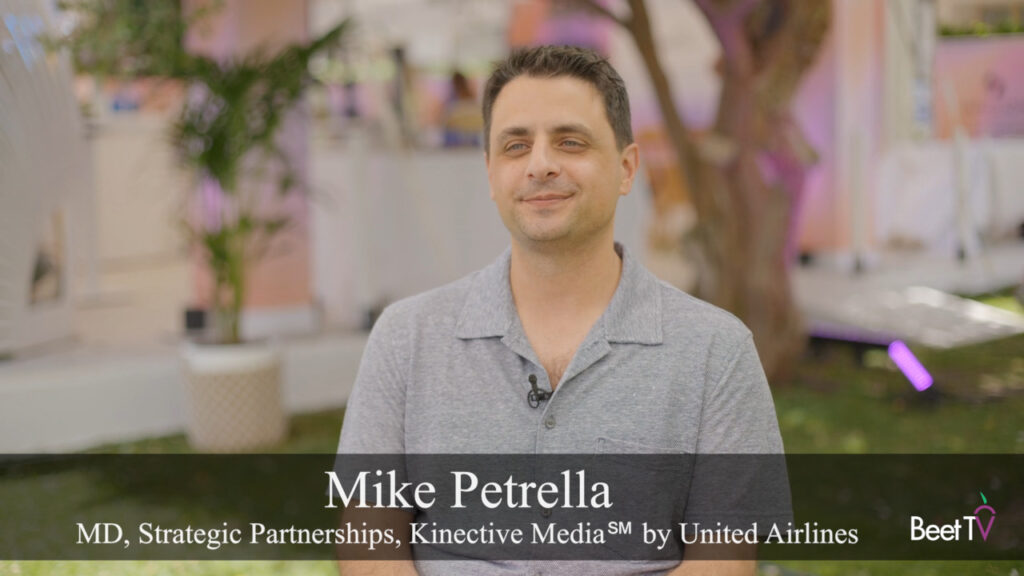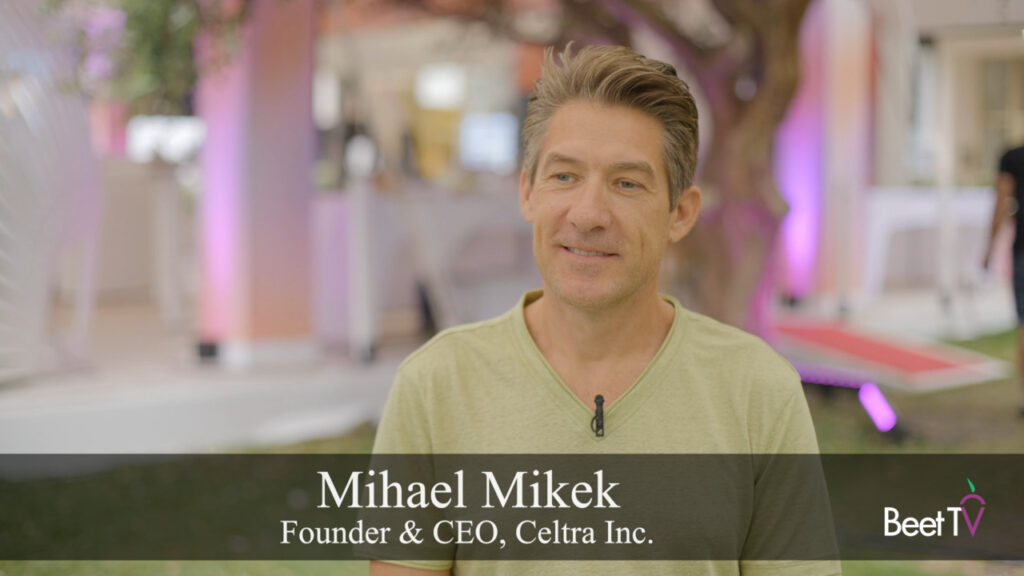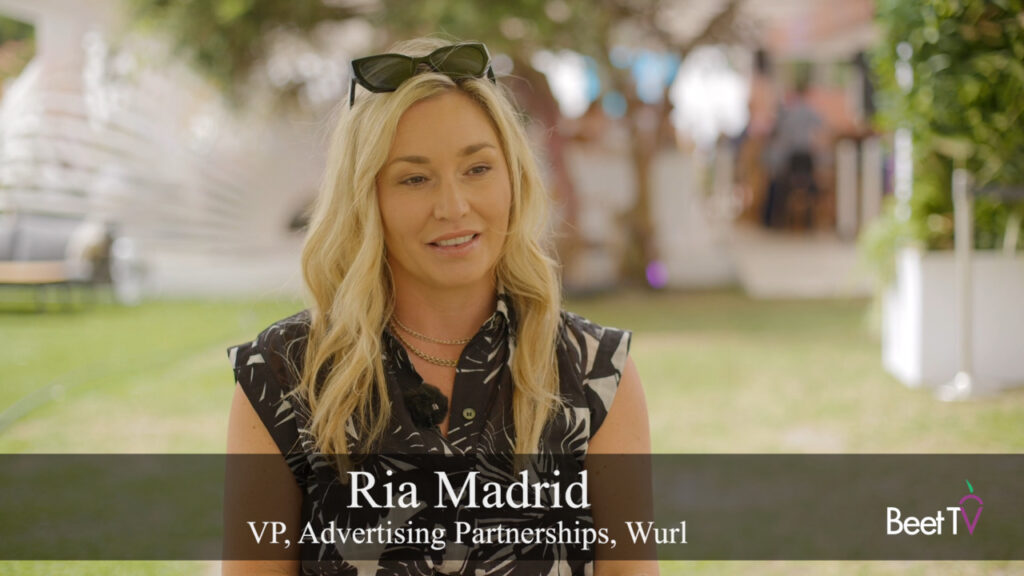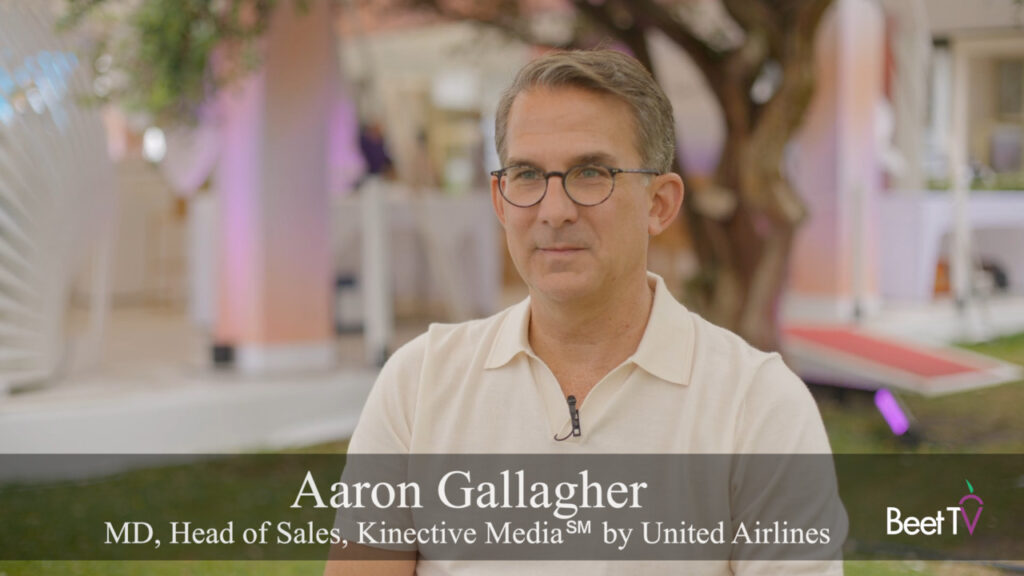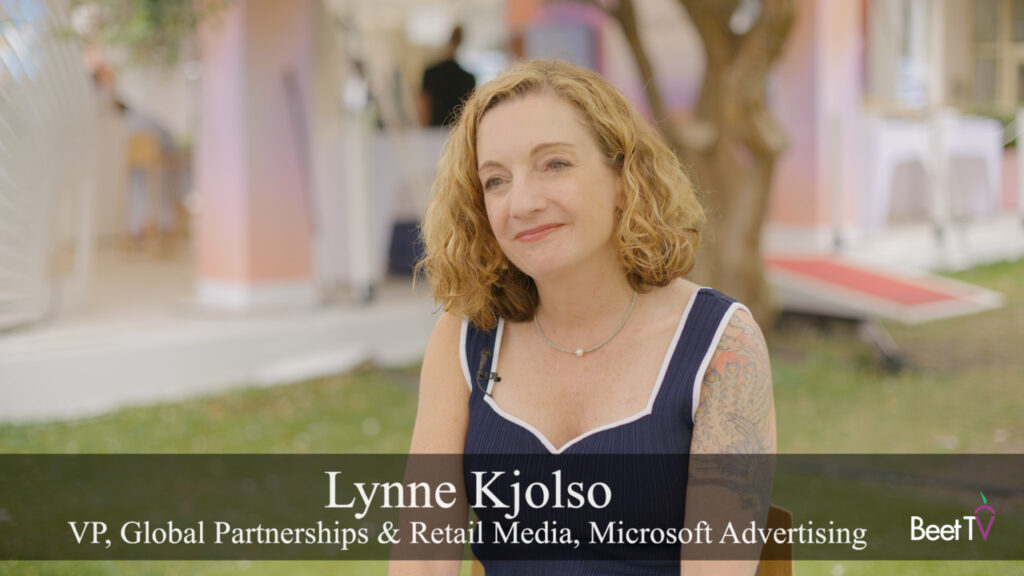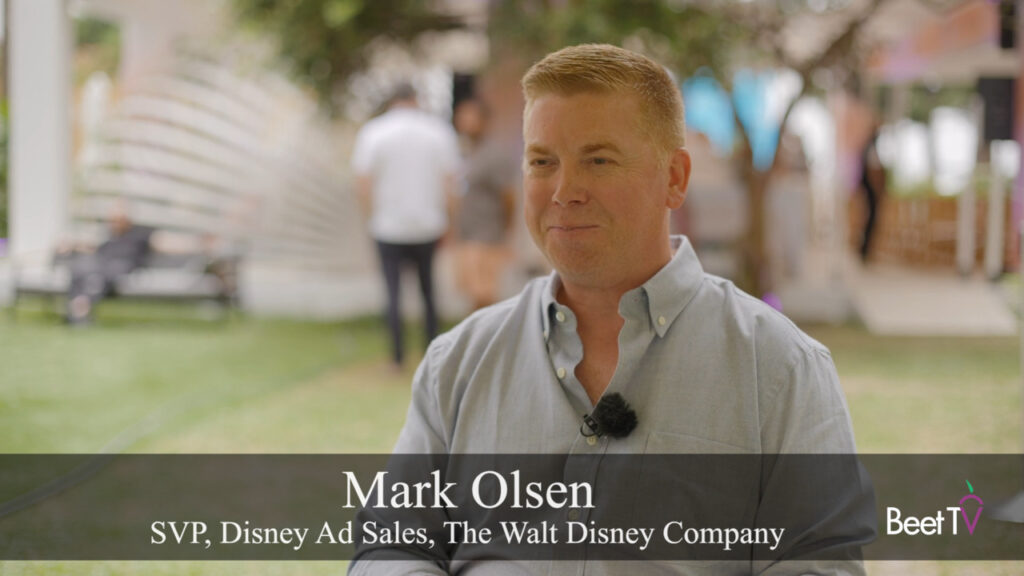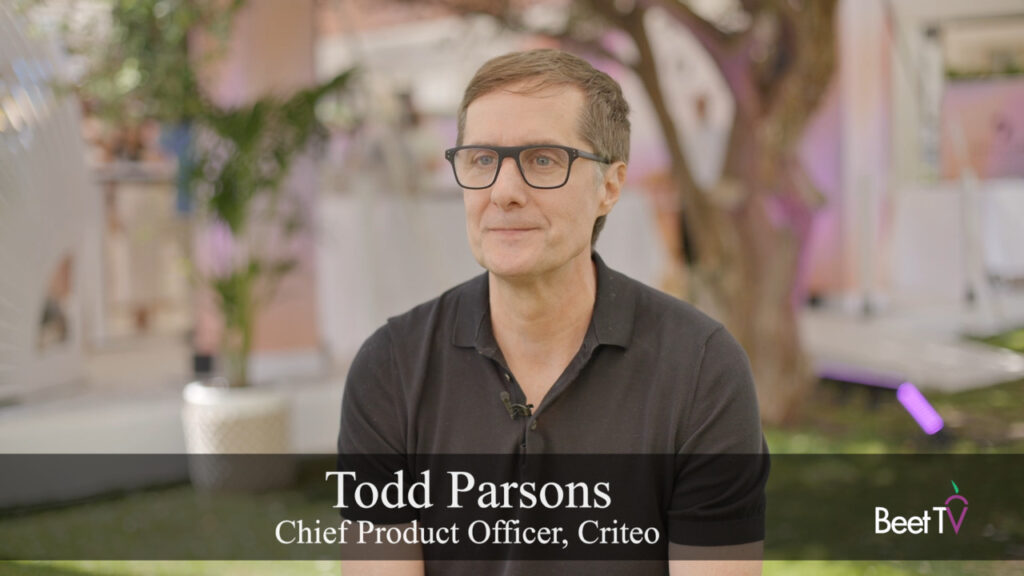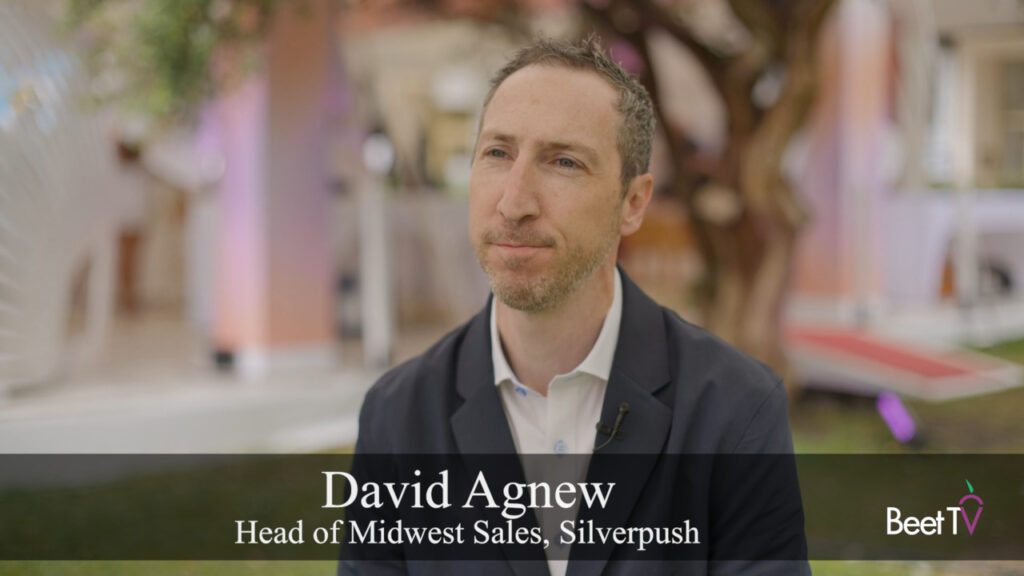
REDMOND, WA — Stefan Weitz, Director of Bing, the new search engine from Microsoft, says that internal research has found that users develop a “habit” with their search engine of choice.
In the first of a two-part interview with with Beet.TV, he does not refer to Google by name. He said that gaining market share in search is a “long term play” and getting users to switch is not easy.
Citing internal Microsoft research, he said that using a search engine becomes a sort of unconscious activity like brushing teeth before bed or shaking a leg during a meeting . (See this reference at 1:50.)
Not Just a Search Engine, a “Decision Engine”
He explains the unique elements of the new service including hover previews, categorized search and price predictors.
He refers to Bing as a “Decision Engine” which incorporates search, but provides far more.
He also explains some of the marketing which includes advertising and placement of Bing on OEM equipment. (I have noticed that Bing is the featured search engine on my new Verizon BlackBerry Tour.)
CNET reports tonight a modest uptick in Bing popularity in July.
Back from Seattle
This is the first of several interviews shot at Microsoft headquarters last week by Beet.TV’s West Coast producer Jeff Brooks.
We will have much more on Silverlight, IE Explorer and the Channel 9, the progenitor of business video blogs. More from Seattle from MSNBC.com and thePlatform. Stay tuned.
Kara Does Redmond
Also last week, AllThingsD Kara Swisher was at Microsoft where she interviewed Satya Nadella, the R&D point man for search. I have published Kara’s video interview on this page below.
Andy Plesser, Managing Editor
Video Transcript
Stefan Weitz: Really with Bing what we were focusing on was trying to figure out what people were actually doing with search. So it’s one thing to go chase the traditional model of search, right, which is you put a keyword in, you get ten blue links back, then you, as the consumer, have to parse through all of these things to figure out what you want to click on. So really with Bing what we did is we kinda stepped back and said, “What’s it gonna take to really capture some of that mindshare, to capture some of those users?” And the answer really was, what we thought at least, was really getting back to our geek roots and getting back into the data and trying to figure out what people were actually doing on the web. So what that resulted in was a bunch of things inside of Bing, a bunch of features inside of Bing, that we think actually cater better to how people are actually using search today: things like hover preview, so you don’t have to click on the link and realize that it’s a bogus link; things like categorized search, right, so when you actually when you punch in a search term we actually structure the results back in a certain way so you don’t have to actually sit there and read every single caption to figure out if that’s the result that you want; things like our travel price predictor; things like our cash back; all those things. We’ve looked at the problems folks were having on the web today with search and then we built features and functionality into the product to address those particular needs. So it’s less about, you know, going after the competition, it’s more about understanding what the users are actually doing and trying to build a product that will cater to those needs.
So there’s a couple of things that we have to look at when we’re looking at these things: A) we’ve always said and we continue to believe it, it’s a long-term game, for…to increase share. But really, when you look at what we’re competing against, there’s a habit, there’s a habit today that people are very accustomed to going to the engine of their choice and it’s hard to break that habit.
In fact, we did a study, a while ago now, before Bing was actually ever launched, to figure out just how ingrained that habit was in consumers and if you look at, I can’t think of the exact phrasing, if you look at kind of deciding which search engine to use on a given query, if you look at where that fell in the continuum of you making a conscious choice, it was between whether or not to brush your teeth before going to bed at night and shaking your leg in a meeting. So literally it was that just subconscious, you were…people actually don’t think about it. So our challenge frankly is to introduce the brand to people so they know there’s an alternative out there to go search, introduce the fact that Bing will do things that, honestly, no other engine does today–like like our exclusive stuff around opinion ranking and price prediction and all that stuff–you just you can’t get that anywhere else in a major search engine, and so a lot of what we have to do is get out there and you’ve seen the advertising, you’ve seen how we’ve integrated that into the prime time shows, you’ve seen how we’ve gone onto Fallon, for example, so kind of the non-traditional stuff as well as the 30-second spots, but also it’s about getting the distribution. Because what we found, to your point, is that when people try it, they like it. So we have to get more folks to try it and get more trials, and so getting distribution with defaults, OEM’s, doing a lot of those types of deals, helps us get that in front of consumers more often.
Bing, when we built it, we decided to just not again create just another search engine. The world isn’t waiting for yet another search engine. We had to do something that we thought actually catered to what people are actually doing, and that’s what we came up with this notion of a decision engine. And the decision engine, when you think about it, really has three big components. The first is great core search, so nailing the basics: relevance, speed, multimedia integration, great previews, that kind of things. That’s the first thing we’ve got to nail. But the second and third things that make…that are what make Bing unique. The second thing is that organization of results. When you do a query for Taylor Swift, you get back 16.1 million results. You don’t want that, and frankly, customers told us that was overwhelming. They were becoming…they had spent way to much time parsing that data to figure out what they wanted. So providing a level of organization so that we can break those things down for the user on the results page. And then the third area that differentiates Bing from other search engines are these tools for insight that help you make these key decisions. So it’s things like tools we’ve built in travel, and tools we’ve built for local, tools we’ve built for shopping, and when you really think about…what got really me excited when we first started seeing comps of Bing was that we were taking search in a different direction. We were actually adapting the user experience, adapting the interface, based on the intent of the user and the task of the user. The idea was, you shouldn’t…if you’re trying to find the best ticket to Arizona for the weekend to hang out with your buddies, for example, giving you back a list of links in a very standardized format doesn’t make sense. Like, we should be smart enough, engines should be smart enough to take a question and adapt the way we display the results to the consumer in a way that’s actually logical for that task. That’s what Bing actually does. So
those are the three areas of Bing; that’s why it’s different than the rest.
As far as revenue, as far as business policy is concerned, it’s contextual ads. People punch in key words into Bing and our ads and our product allows advertisers to bid for those key words in an auction model and we can display those text links on the right rail or on the top of the results. So, pretty standard.







